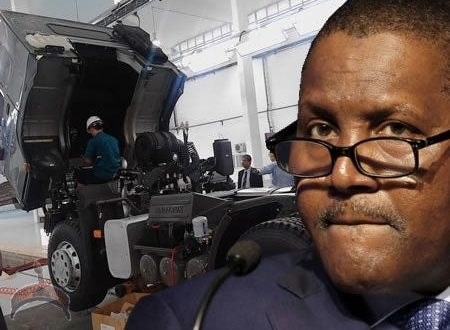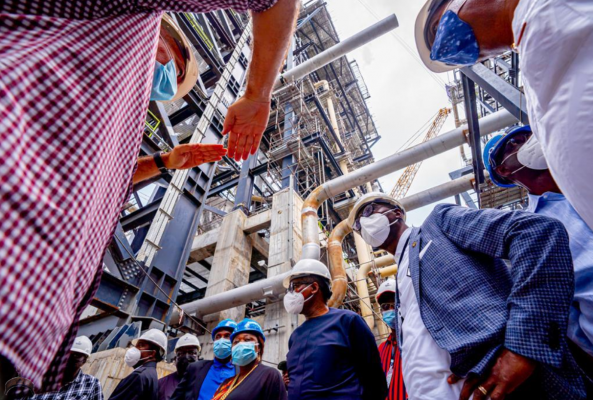Dangote Group has entered into a long -term agreement with an Enugu-based automaker, Transit Support Services Limited, for the supply of Shacman trucks being assembled at the Anambra Motor Manufacturing Company Limited’ s factory in Emene , Enugu.
Already , the group has purchased 3 ,500 trucks from the automaker worth N 63 bn , according to the Managing Director of the Transit Support Services , Mr Frank Nneji .
Nneji , who spoke with journalists on Saturday after a facility tour of the truck assembly line at the ANAMMCO plant, said the supplies amounted to over 90 per cent of all Shackman trucks assembled at the factory since the revival of the plant after a long period of abandonment.
“ About 90 per cent of trucks produced here are for Dangote. Right now at the dump , we have about 300 units . Since last year , we have done 800 units .
Dangote Group since inception has bought about 3 ,500 units from us. It also patronises the Shackman trucks for its refinery currently being built in Lagos ,” he said .
He said the project had also kept busy the Onne port , which was dormant for many years .
According to him, the port is used for the delivery of vehicle components supplied to the ANAMMCO plant by its partner from China , Shaanxi Heavy Duty Automobile Import & Export Company .
Nneji , who is also the MD of ABC Transport Plc, the franchise holder of the Shacman Nigeria , said the Dangote /Shacman truck deal had benefited the people in the area immensely through job creation and training of young school leavers .
He said, “ This has been of tremendous benefit for the people in the South -East. For more than seven years, this place was shut down .
“ There was no activity until Shackman came and we made an agreement with the Shacman Group and we started skeletally .”
He added , “ We were only able to start full production of trucks when we offered logistics solutions to the Dangote Group . That was in 2016 when we started the first agreement for 500 trucks .
“ With this , many workers of ANAMMCO who had been at home had to come back to work ; some local suppliers of lubricants, electrolyte and the rest had to return to business .”
Nneji noted that the resuscitation of the ANAMMCO plant was made possible through the establishment of the auto policy which encouraged local production of automobiles.
 Ọmọ Oòduà Naija Gist | News From Nigeria | Entertainment gist Nigeria|Networking|News.. Visit for Nigeria breaking news , Nigerian Movies , Naija music , Jobs In Nigeria , Naija News , Nollywood, Gist and more
Ọmọ Oòduà Naija Gist | News From Nigeria | Entertainment gist Nigeria|Networking|News.. Visit for Nigeria breaking news , Nigerian Movies , Naija music , Jobs In Nigeria , Naija News , Nollywood, Gist and more









